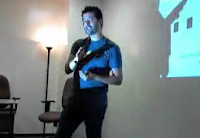ABRG BLOG
Jeffrey Johns of Northstar consulting recently presented on “Using Insight Innovation to Re-Invent a 247-Year Old Institution” at the 2016 QRCA Worldwide Conference on Qualitative Research. His investigation piqued our interest and made us want to dig deeper to understand his methods and findings. The Summer Exhibition at London’s Royal Academy is one of the most significant and unique visual experiences in the world due to the combination of works from emerging and established artists. However, since its inception in 1769, the structure of the exhibit has remained largely unchanged. But for the upcoming 250th Summer Exhibition, London’s Royal Academy intends to make changes that incorporate the needs of a new generation of visitors as well as other trends from our changing world.
Consulted for their expertise on customer-related research, Northstar was brought in to help The Royal Academy as it moves forward with its redesign. Northstar’s undertaking of this project was unique because The Royal Academy had never consulted with researchers before, thus making the collection and presentation of findings original and unfamiliar. In fact, Northstar’s insights were reflected in the 247th Summer Exhibition in 2015 and visitor volume and art sales were noticeably higher; a good indicator of the impact they will have on the 250th anniversary. The study itself was unique because of its short timeframe and methods used, unlike those commonly used in ethnographic research where experiments are long and data collection is extensive. Northstar’s goal with this immersive research was to provide consumer insights that could make the Summer Exhibition more popular and enjoyable.
Northstar conducted its research within the institution and yielded 16 hours of data and 400 photographs. Their qualitative, ethnographic approach included methods such as listening in on visitors’ conversations, observing gestures/interaction of visitors with art, and conducting ‘non-interview-like’ conversations with visitors. The research uncovered trends such as “Visitor control”, “family”, and “divergence” which rose to the top across many exhibit visitors. But how does this help the London Royal Academy? What do these trends mean? “Visitor control” meant that visitors liked that they weren’t guided through the exhibition and were free explore on their own. “Family” referred to the fact that the exhibition has become well known to families who have made visiting the exhibition a tradition. “Divergence” showed that the combination of both emerging and establishing artists is a positive for the exhibit because it reflects inclusivity. By understanding these trends, the Royal Academy will have a better understanding of what is needed for the redesign of the Summer Exhibition.
Northstar’s innovative research methods provide d actionable insights for an institution that did not formerly utilize qualitative research. Utilizing qualitative research may be something that the London Royal Academy will continue to do given its increase in art sales and visitor volume since changes reflecting the trends of control, family and divergence were made. Entering uncharted territory was a success for Northstar because this unique methodology resulted in positive outcomes for their client; indicating that innovative methods could be advantageous and should be implemented in other non-typical areas.










